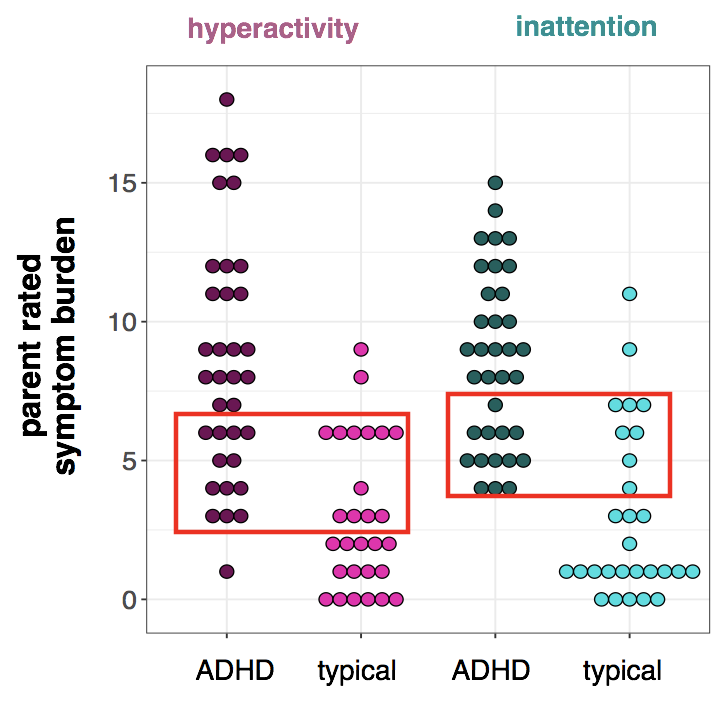
Research
Brain networks underlying learning and attention
Tasks like answering a math question or paying attention in class require an orchestration of brain systems that support vision, motor function, memory, attention, and cognitive control. Using tools from network science, we study how these brain systems functionally interact and how those interactions change with different developmental challenges.
The role of cognitive control in developmental difficulties
Learning difficulties occur in more than 10% of students and are often comorbid with other developmental difficulties, such as ADHD. Our research explores the idea that a deficit in cognitive control and (dys)function of cognitive control brain networks may contribute to these developmental difficulties, regardless of the specific disorder or challenge.
Using the brain to understand treatment
It is hard know what treatment or dosage will improve outcomes for a child with a developmental difficulty. Our research aims to understand neurobiological factors that underlie a propensity to respond or not respond to treatment (educational or medical), an important step toward better individually targeted treatments and outcomes.
Parsing heterogeneity across youth
Developmental difficulties encompass individuals with heterogenous cognitive abilities and symptom profiles. This heterogeneity can make it difficult to decide what type of treatment will be most effective for a given individual. Neurobiological data has the potential to play a pivotal role in parsing this heterogeneity to identify important neural signatures that may be present in different subgroups.




